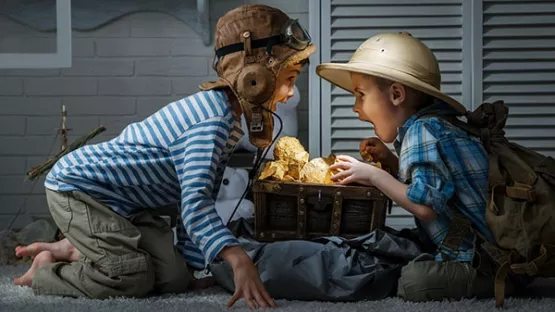
Treasure hunt at home
Preparation of the mission
First of all, take a tour around the house with your little one. Show the rooms one by one, as well as the various appliances or furniture that each room contains, such as the telephone and the TV in the living room or the wardrobe in the bedroom. To help your child remember how all this is said, hang little notes with the names on the doors of the rooms on the furniture.
The treasure hunt begins!
When you have finished the tour, have your child wait in their room while you hide their favorite toys or chocolates in some of the rooms and furniture. Now it's time for your little one to start the quest and claim the prizes! Give them some clues about the hideouts and let them try to find them on their own. For example: "Can you tell mom where the kitchen is? A very nice sweet treat awaits you there! ”
A handy guide
Your child will probably be able to understand where you are hiding them, but just in case, follow them closely to help if needed. You can use the 'cold-hot' method (you say 'cold' when the child is far away, and 'hot' when they approach the object they are looking for) or just give some more clues. Try not to reveal the hiding place quickly. This game builds children's confidence and independence and at the same time educates and entertains them!
And as long as the treasure hunt, don't forget to take photos or record your little one's exploration - to share the moments with us!
Family games in a pleasant and cozy atmosphere can bring you closer to your child. By playing with them, you have the opportunity to control their physical and mental development. Family play time is best suited for parents to monitor and record their child's skills or weaknesses at different stages of development.
